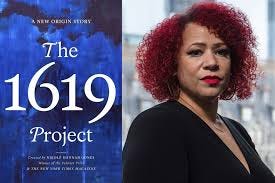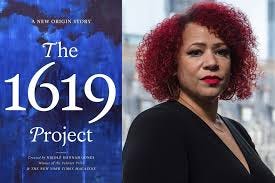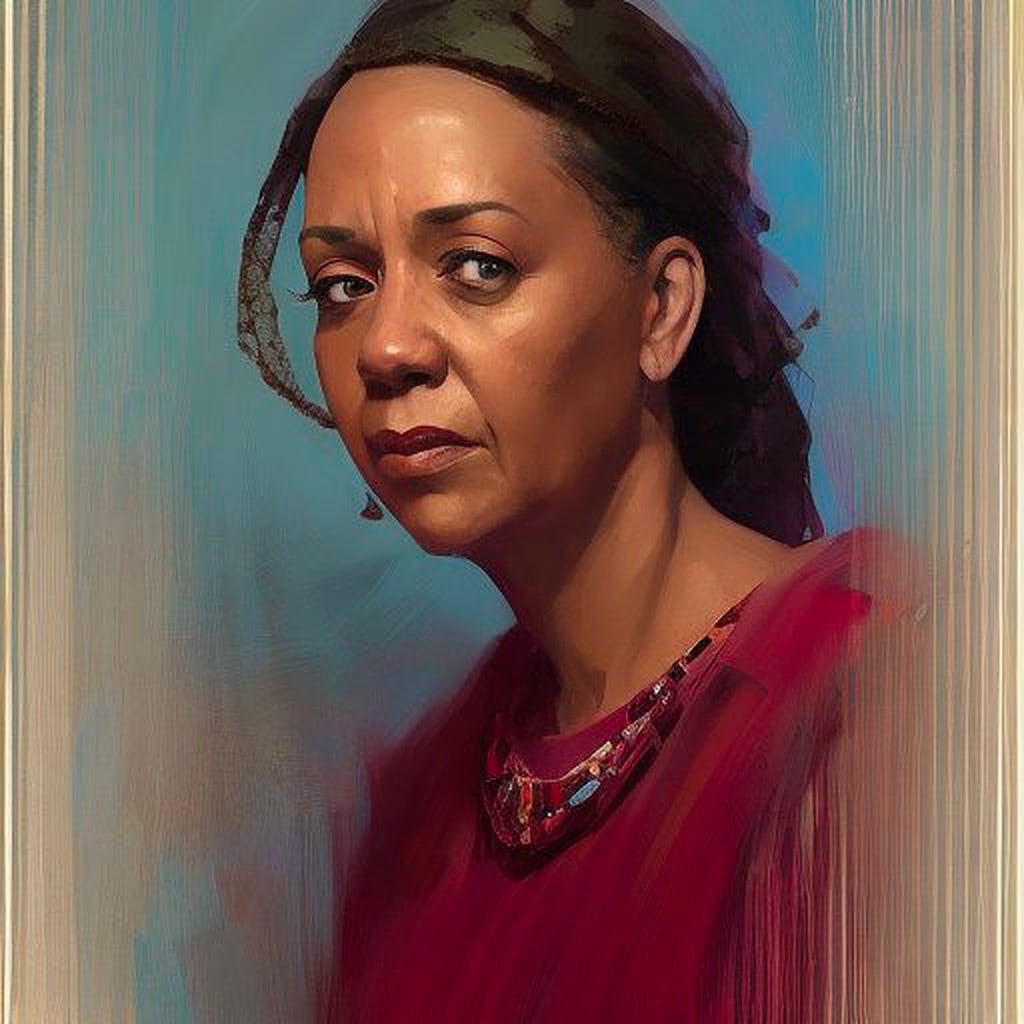Today In Black History: The 1619 Project
Unearthing America's Untold History
Issue #655 Today In Black History, Monday, July 1, 2024
Help us to reach our July 2024 goals: +117 total new subscribers, including +20 paid subscribers:
Please share and subscribe to help us grow our publication.
If you like us, REALLY like us, please click the “Like” button at the end of this post!
Also, please scroll to the end of this post for other ways to financially support us and We Are Speaking with our books and courses.
We appreciate your support!
Today’s Black History WOW!
The 1619 Project is a groundbreaking journalistic initiative launched by The New York Times Magazine in August 2019, which seeks to reframe American history by placing the consequences of slavery and the contributions of Black Americans at the very center of the national narrative. Spearheaded by Pulitzer Prize-winning journalist Nikole Hannah-Jones, the project was introduced to mark the 400th anniversary of the arrival of the first enslaved Africans in the English colonies, which occurred in August 1619.
The 1619 Project is intended to provide a more comprehensive understanding of true American history. It underscores the systemic racial injustices that have shaped the United States since the first enslaved Africans were brought to the shores of Virginia. Traditionally, American history has often glossed over or minimized the profound impact that slavery and subsequent racial discrimination have had on the nation's social, political, and economic history.
The project includes an array of essays, poems, short fiction, and multimedia content, contributed by historians, journalists, and scholars, aiming to highlight how the legacies of slavery continue to permeate American society. Key themes explored include capitalism, healthcare, education, and the criminal justice system—each dissected through the lens of slavery's enduring impacts.
Since its release, the 1619 Project has not only sparked widespread discussion and debate but has also been adopted in some educational curricula across the United States. Educators see it as a valuable resource to provide students with a more nuanced and truthful account of American history, thus fostering a deeper understanding of the present-day implications of historical injustices.
The project has evolved beyond its initial publication, inspiring a series of follow-up works, including a book, a podcast, and curricular materials designed to be integrated into school programs. These resources are intended to help educators incorporate the project's themes into their teaching, promoting a more inclusive and accurate portrayal of the country's past.
However, the 1619 Project has faced substantial criticism from conservative circles, who argue that the project distorts history to promote a political agenda. Critics accuse it of being overly negative and of undermining the founding ideals of the United States.
The right-wing pushback has led to legislative actions in some states aiming to restrict how history, particularly topics related to race and slavery, is taught in schools. Bills have been introduced and passed that seek to ban the use of the 1619 Project in public education, alleging that it promotes "divisive concepts" and paints the United States in an unfairly negative light.
Some prominent right-wing political figures and commentators have weighed in on the debate, with some labeling the project as unpatriotic. Former President Donald Trump announced the creation of the 1776 Commission in response, aiming to promote "patriotic education" that would counter what he described as a "radical" re-interpretation of American history.
The 1619 Project has undeniably ignited a crucial conversation about race, history, and memory in America. While critics argue it is divisive, supporters contend that confronting the full scope of America's history is essential for understanding the present and creating a more equitable future.
Today In Black History
In 1863, slavery was abolished in the Dutch territories of Sint Maarten, Suriname, and the Dutch Antilles.
In 1873, James Webster Smith became the first Black man to enroll in the West Point Military Academy.
In 1898, the all-Black Tenth Cavalry charged El Caney, Cuba, and relieved Theodore Roosevelt’s Rough Riders. Four Black regiments in the regular army were involved in fighting around Santiago in the Spanish-American War. Sixteen regiments of Black volunteers were recruited during the War.
In 1899, Frederick Douglass became the first Black person to be named minister to Haiti.
In 1960, the African nation of Somalia proclaimed its independence from Britain and Italy.
In 1960, the African nation of Ghana became a republic.
In 1962, the African nations of Rwanda and Burundi gained their independence.
In 1966, Medicare, the U.S. national health insurance program, went into effect.
In 1976, Kenneth Gibson, the mayor of Newark, became the first Black president of the U.S. Conference of Mayors.
In 1971, the 26th Amendment, which lowered the voting age from 21 to 18, was ratified as part of the Constitution.
In 1973, Tom Bradley became the 1st Black mayor of Los Angeles.
In 1991, Clarence Thomas was nominated to the Supreme Court by President George H.W. Bush.
In 2017, Ethiopian Tedros Adhanom became the first African Director-General of the World Health Organization.
In 2022, Germany and Nigeria agreed to the return of more than 1,000 Benin Bronzes to Nigeria that were looted during colonial times.
Our paid subscribers are encouraged to discuss this post in our W.A.S. Chat Community.
Join Pamela Hilliard Owens’s subscriber chat
Available in the Substack app and on web
You are also welcome to view “We Are Speaking” in Substack Notes. You can also read other Substack publications without subscribing to them when you join Notes.
This post is free to read for three days. To have access 365/24/7 to our full archive, comment on our posts, and financially support “We Are Speaking” for no more than $5 per month, please subscribe at the paid level.







